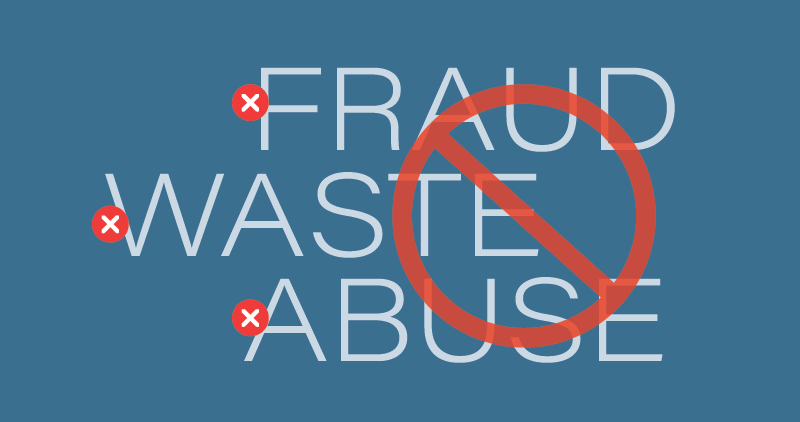Provider Enrollment Units: The Gatekeepers

by Dale Carr, NAMPI Regional Representatives Chair
When we talk about Medicaid Program Integrity (PI), provider enrollment is not usually the first area that comes to mind. However, we generally agree that we can prevent a substantial amount of fraud, waste, and abuse (FWA) by denying bad actors access to our Medicaid programs in the first place.
We know the structure of State Medicaid programs and PI units varies widely across all 50 states and the U.S. territories. Frequently, provider enrollment is located in a separate division of the State Medicaid Agency (SMA) or contracted out to a nationally known commercial vendor.
How confident are you that your organization’s provider enrollment, screening, and monthly monitoring processes are identifying bad actors and denying them access to your Medicaid claims system before they get their foot in the door? Do your screening and monthly monitoring processes only check the minimum databases required by federal Medicaid regulations or is your state using a more robust solution, checking many additional healthcare provider-related databases and developing a more holistic picture of a provider’s history and eligibility?
In Missouri, our Provider Enrollment Unit (PEU) is an important cornerstone of our PI efforts, every bit as much as our auditors, investigators, and sanctions groups. Fortunately, our PEU is part of our Missouri Medicaid Audit & Compliance (MMAC) unit and interacts with the rest of our PI team on a daily basis.
During State Fiscal Year 2022, MMAC’s PEU enrolled 13,128 new providers and rejected 1,148 applications. Halfway through SFY-2023, the PEU has enrolled 6,716 new providers and rejected 1,460 applications; significantly more than the total for all of SFY-2022.
While many provider applications are rejected due to incomplete or incorrect applications, a significant number are denied “for cause”. Examples of “for cause” denials would be a failure to properly disclose the prior criminal history of an owner or managing employee, previous sanctions against the provider or individuals with ownership or control, or pending investigations by law enforcement or professional licensing boards.
In reality, many credentialing officials do not check with each owner, officer, board member, and/or managing employee of the enrolling organization to see if they have something derogatory in their past that should be disclosed on the Medicaid enrollment application forms.
Another frequent issue encountered by our PEU staff is the submission of fraudulent or manipulated supporting documents after a provider’s initial enrollment packet was rejected for missing or incorrect forms. Rather than taking the needed time to get an authentic document from the IRS, state tax agency, or a copy of their current lease for their office location from the property owner, providers will submit a doctored and fraudulent document. PEU staff who deal with such forms on a daily basis can easily spot fraudulent submissions. Our unit’s practice is to have the agency or business that generates the genuine forms verify that they did not issue the forged one submitted by the provider representative.
Transfer of ownership or control of an enrolled institutional provider between relatives, which is not the result of a death or retirement, are “red flags” that should be vetted thoroughly. Frequently, the family member transferring ownership has gotten into legal or financial trouble, which affected their eligibility to continue participating in the Medicaid program.
Within the past few months, our PEU team has identified several cases where the owners of existing providers got caught filing fraudulent Paycheck Protection Program (PPP) loans. In one case, a mother and son who owned and operated an In-Home Personal Care agency pled guilty, were sentenced to federal prison and ordered to pay restitution for PPP fraud. The mother attempted to transfer ownership of the agency to her father, who was a military retiree and had no healthcare experience. The mother’s intention was to continue running the agency and receiving money from behind the scenes.
Our PEU unit also encounters situations where the owner of a financially strapped Medicaid provider sells their agency to another, usually larger company. As part of the acquisition process, the purchaser usually has the seller (let’s call her Betty) sign a multi-year non-compete agreement preventing them from opening up another agency within the state or serving as a consultant to the purchaser’s competitors. In a number of cases, Betty has still turned around and conspired with a friend or relative to open a new agency and attempt to enroll with Medicaid, while hiding Betty’s true ownership or control of the new agency.
Here are some recommended best practices that you may want to consider for your PI and PEU units:
PEU staff should always check the PI unit’s case management system to see if there are any historical actions taken against the applying provider’s owner(s), officers, directors, and/or managing employees which should have been disclosed on Medicaid provider enrollment application forms;
Ask your PI staff to notify your PEU team any time they determine that an active provider’s enrollment information is outdated or incorrect. Auditors and investigators are frequently the first ones to discover that a provider has a new business address, phone number, email address, or managing employee;
Our PEU staff maintains a list of all pending pre or post-enrollment site visits. Consider having your auditors or investigators conduct an enrollment site visit if they are going to be close by. The site visit forms can give guidance on the information to be collected during the visit, including photographs of the interior and exterior of the provider’s business location;
PEU and PI staff should ask to see some form of official photo identification to verify the identity of the provider representative they are meeting with during enrollment site visits, audits, or investigations.
Please reach out to MMAC’s Provider Enrollment Manager, Erin Twenter, at (573) 751-3399 or by email at MMAC.ProviderEnrollment@dss.mo.gov if our unit can be of any assistance to your state. I would also encourage state PI representatives to post any Medicaid provider enrollment fraud-related questions or topics in the NAMPI Member Portal.

